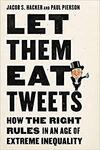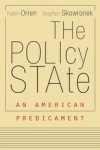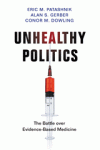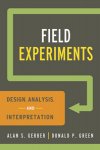Publications
About Our Publications
On this page you will find a list of publications by ISPS Affiliates, including peer-reviewed journal articles, policy briefs, and working papers.
When possible, Publications are linked to Projects and Data via the ISPS KnowledgeBase.
| Title | Author(s) | Discipline | Publication |
Year |
|---|---|---|---|---|
| The Racial Burden of Voter List Maintenance Errors: Evidence from Wisconsin’s Supplemental Movers Poll Books |
Gregory A. Huber, Marc Meredith, Michael Morse, & Katie Steele |
Political Science | Science Advances | 2021 |
| Partisan Differences in Social Distancing May Originate in Norms and Beliefs: Results from Novel Data |
Jennifer D. Wu and Gregory A. Huber
|
Political Science | Social Science Quarterly | 2021 |
| Not by Turnout Alone: Measuring the Sources of Electoral Change, 2012 to 2016 |
Seth J. Hill, Daniel J. Hopkins, and Gregory A. Huber |
Political Science | Science Advances | 2021 |
| The Generalizability of Online Experiments Conducted During the COVID-19 Pandemic |
Kyle Peyton, Gregory A. Huber, and Alexander Coppock |
Political Science | Journal of Experimental Political Science | 2021 |
| Experimental Evidence That Changing Beliefs About Mask Efficacy and Social Norms Increase Mask Wearing for COVID-19 Risk Reduction: Results From the United States and Italy |
Scott E. Bokemper, Maria Cucciniello, Tiziano Rotesi, Paolo Pin, Amyn A. Malik, Kathryn Willebrand, Elliott E. Paintsil, Saad B. Omer, Gregory A. Huber and Alessia Melegaro
|
Interdisciplinary | PLOS ONE | 2021 |
| Persuasive Messaging to Increase COVID-19 Vaccine Uptake Intentions |
Erin K. James, Scott E. Bokemper, Alan S. Gerber, Saad B. Omer, Gregory A. Huber |
Interdisciplinary | Vaccine | 2021 |
| Irrelevant Events and Voting Behavior: Replications Using Principles from Open Science |
Matthew H. Graham, Gregory A. Huber, Neil Malhotra, and Cecilia Hyunjung Mo |
Political Science | Journal of Politics | 2021 |
| Measuring Misperceptions: Limits of Party-Specific Stereotype Reports |
Lilla V. Orr, Gregory A. Huber |
Political Science | Public Opinion Quarterly | 2021 |
| Persuading US White Evangelicals to Vaccinate for COVID-19: Testing Message Effectiveness in Fall 2020 and Spring 2021 |
Scott E. Bokemper, Alan S. Gerber, Saad B. Omer, Gregory A. Huber |
Political Science | Proceedings of the National Academy of Sciences | 2021 |
| Mass Support for Proposals to Reshape Policing Depends on the Implications for Crime and Safety |
Paige E. Vaughn, Kyle Peyton, and Gregory A. Huber |
Interdisciplinary | Criminology & Public Policy | 2022 |
| Can Raising the Stakes of Election Outcomes Increase Participation? Results from a Large-Scale Field Experiment in Local Elections |
Gregory A. Huber, Alan S. Gerber, Daniel R. Biggers and David J. Hendry |
Political Science | British Journal of Political Science | 2022 |
| Identifying Legitimacy: Experimental Evidence on Compliance with Authority |
Eric S. Dickson, Sanford C. Gordon, and Gregory A. Huber |
Political Science | Science Advances | 2022 |
| Testing Persuasive Messaging to Encourage COVID-19 Risk Reduction |
Scott E. Bokemper, Gregory A. Huber, Erin K. James, Alan S. Gerber, Saad B. Omer
|
Interdisciplinary | PLOS ONE | 2022 |
| Accountability Reconsidered: Introduction |
Charles M. Cameron, Brandice Canes-Wrone, Sanford C. Gordon, and Gregory A. Huber |
Political Science | Book chapter | 2023 |
| Accountability Reconsidered: Conclusion: Assessing Contemporary Accountability |
Charles M. Cameron, Brandice Canes-Wrone, Sanford C. Gordon, and Gregory A. Huber |
Political Science | Book chapter | 2023 |
| Can Citizens Assess Policies Based on Programs’ Costs and Benefits? The Role of Yardsticks and Contextual Information in Democratic Accountability |
Eric M. Patashnik, Patrick Tucker, and Alan S. Gerber |
Political Science | Book chapter | 2023 |
| What to Expect When You're Electing: Citizen Forecasts in the 2020 Election |
Gregory A. Huber and Patrick D. Tucker
|
Political Science | Political Science Research and Methods | 2023 |
| Health Risks and Voting: Emphasizing Safety Measures Taken to Prevent COVID-19 Does Not Increase Willingness to Vote in Person |
Gregory A. Huber, Alan S. Gerber, and Scott E. Bokemper |
Political Science | American Politics Research | 2023 |
| Personal Risk or Societal Benefit? Investigating Adults’ Support for COVID-19 Childhood Vaccination |
Chiara Chiavenna, Laura P. Leone, Alessia Melagaro, Tiziano Rotesi, Scott E. Bokemper, Elliott E. Paintsil, Amyn A. Malik, Gregory A. Huber, Saad B. Omer, Maria Cucciniello, and Paolo Pin |
Interdisciplinary | Vaccine | 2023 |
| On the Merits of Separate Spaces: Why Institutions Isolate Cooperation and Division Tasks |
Scott E. Bokemper and Gregory A. Huber |
Political Science | Political Behavior | 2023 |
ISPS Working Paper Series
ISPS advances interdisciplinary research in the social sciences that aims to shape public policy and inform democratic deliberation. The ISPS network includes scholars and students from many departments in the Faculty of Arts and Sciences and from Yale’s graduate and professional schools as well as select experts from other institutions. The ISPS Working Paper Series provides a platform for ISPS affiliates to make their work available for public consumption and discussion.
Featured Books by ISPS Faculty
ISPS Sponsored Publications
ISPS Politics & Policy Book Series: A series striving to place policy- and law-making in historical and comparative perspective, reflecting the broad, multidisciplinary character of ISPS.
ISPS Journal: A biannual publication that serves to highlight ISPS scholars’ publications and as a development piece for foundations and interested donors.
GOTV website: A website compiling results from a wide array of voter mobilization field experiments. Findings from these scientifically measured studies of various Get-Out-the-Vote methods offer valuable insight into which methods are most effective in mobilizing voter turnout (Note: the website indexes GOTV experiments published before 2006).
The Bulletin of Yale University includes several issues devoted to ISPS (PDF): 2000-2002, 2002-2004, 2004-2006, and 2006-2008.






